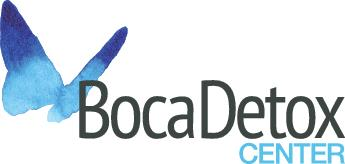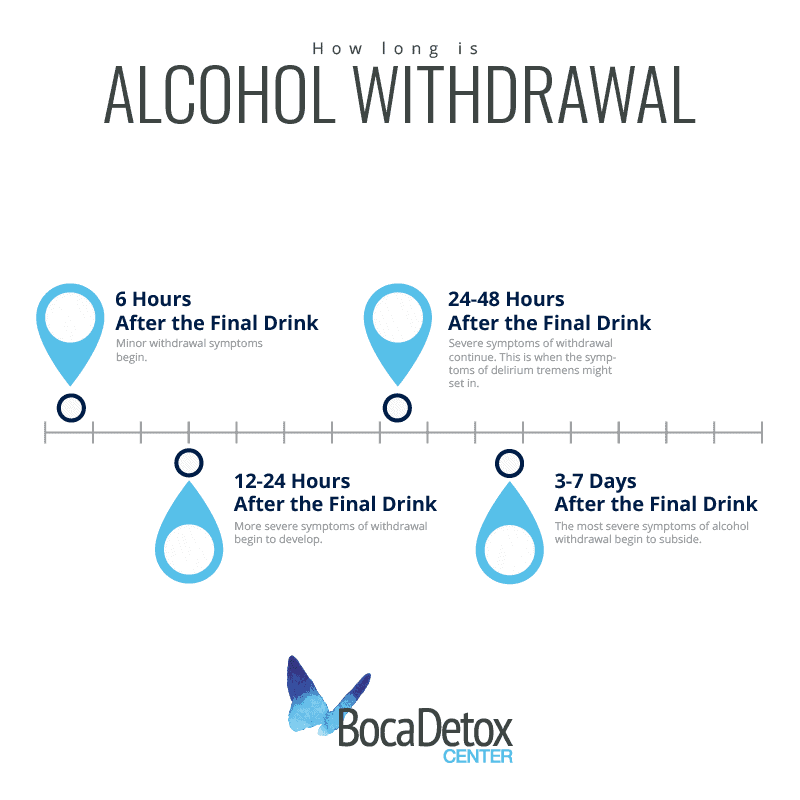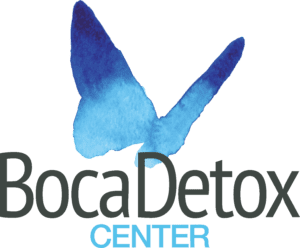Medically Assisted Alcohol Detox
at Boca Detox Center
at Boca Detox Center
The initial step on every journey of addiction recovery is admission to a medically assisted detoxification center. Those who have been abusing drugs or alcohol for any period of time almost always undergo some degree of withdrawal upon abrupt cessation of use. More often than not, the symptoms of withdrawal will lead a person back to substance use before the detoxification process is over. Additionally, the symptoms associated with alcohol detox can lead to serious and sometimes life-threatening complications when left untreated. This is part of the reason why entering into an inpatient alcohol detox program is so important.
At Boca Detox we provide a comprehensive detox program; one that focuses on more than a safe, pain-free drug and alcohol withdrawal. In addition to providing around the clock medical care, we actively prepare our clients for the next appropriate stage of their personal recovery journeys. During alcohol detox, we conduct an individualized, in-depth evaluation, which helps us determine the length of our clients stay, what kind of medical intervention is necessary, and the next step for each client once they become physically stabilized.
The Boca Detox Center Method: Alcohol Detox
We Are Here For You
Let Us Help You Heal
Our detoxification experience is second to none.
Learn how we can help by speaking with one of our Treatment Advisors today.
What is Alcohol Addiction?
The National Institute on Alcohol Abuse and Alcoholism reported that in the year 2018, the National Survey on Drug Use and Health found that 86.3 percent of all Americans had consumed alcohol at least once during their lifetimes. 70 percent reported that they had consumed alcohol within the past year, and 55.3 percent reported that they had consumed alcohol within the past month. The truth is, drinking alcohol is truly as much a part of American culture as baseball and apple pie — drinking (even drinking to excess) has been profoundly normalized.
When it comes to heavy drinking and binge drinking, rates across the country are also exceptionally high. During the same year, the survey found that 26.45 percent of American men and women over the age of 18 engaged in binge drinking at least once during the past month. The Centers for Disease Control and Prevention define binge drinking as a detrimental pattern of alcohol consumption that quickly brings someone’s blood alcohol content (BAC) above the legal limit of 0.08. The CDC also suggests that binge drinking occurs when a male drinks over five alcoholic beverages within an hour or a woman drinks over four alcoholic beverages within an hour. While heavy drinking does not always precede the development of an alcohol use disorder, it is a good indication that some degree of professional intervention has become necessary.
If you have been engaging in heavy drinking, or if you believe you might be suffering from a diagnosable alcohol use disorder, Boca Detox is available to help. We have developed a highly individualized alcohol detox program, geared towards helping our clients through a safe, pain-free alcohol withdrawal as they prepare to take the next step on their personal journeys of recovery. To learn more about the Boca Detox Center method and what makes our alcohol detox program unique, contact us today.
Signs & Symptoms of Alcohol Addiction
If you believe you or someone you love has been suffering from a diagnosable alcohol use disorder, there are several signs and symptoms to keep an eye out for. The Diagnostic and Statistical Manual of Mental Disorders, Fifth Edition (DSM-V) outlines a list of diagnostic criteria used to identify the presence of an alcohol use disorder. If you answer “yes” to two or more of the following questions, seeking professional help from a medical detox center is likely a good idea.
- Do you sometimes end up using more alcohol than you originally intended, or do you use alcohol more frequently than you intend to?
- Have you wanted to cut back on the amount you drink or quit entirely, only to find you were unable to do so for any significant period of time?
- Do you spend a significant amount of time obtaining alcohol, using alcohol and recovering from its effects?
- Do you often think of using alcohol/do you ever experience intense cravings?
- Has your alcohol use interfered with your ability to fulfill personal obligations or negatively impacted your performance at work or at school?
- Have you experienced interpersonal problems as a direct result of your alcohol use?
- Have you given up activities which were once interesting or important to you in order to engage in alcohol use?
- Have you been engaging in risk-taking activities more often than normal, like driving while under the influence of alcohol or combining alcohol with other substances like opioid narcotics or marijuana?
- Do you continue to use alcohol despite physical or psychological health concerns directly related to the substance?
- Have you developed a physical tolerance, meaning more drinks are required in order for the desired effects to be achieved?
- Do you experience withdrawal symptoms when alcohol use is stopped abruptly?
Our Detox Services Include
If you or someone you love has been struggling with an alcohol use disorder of any severity, there is help available and recovery is possible. At Boca Detox we combine proven detox methods with intensive behavioral therapy, peer support groups and holistic treatment approaches.

What are the Signs & Symptoms of Alcohol Withdrawal?
Individuals who have developed an alcohol abuse or dependence disorder experience signs and symptoms of withdrawal upon ceased use. When left unmanaged, alcohol withdrawal ranges from severely uncomfortable to potentially life-threatening.
During the acute phase of alcohol withdrawal, individuals are likely to experience:
- Increased blood pressure and heart rate
- Irritability and agitation
- Severe anxiety
- Seizures
- Delirium tremens (in severe cases of alcohol addiction)
Once the acute phase of withdrawal has come to an end, the individual will experience a set of mild, moderate or severe withdrawal symptoms.
Mild symptoms include:
- Persistent headaches
- Stomach issues like nausea
- Vomiting and diarrhea
- Disrupted sleep patterns
- Body aches and tremors
- Heart palpitations and mild anxiety
In addition to all of the symptoms above moderate symptoms include:
- Profuse sweating
- Fever
- Increased heart rate
- Spiked blood pressure
- Extreme confusion
- Respiratory depression (difficult breathing)
Along with the above, severe symptoms include:
- Hallucinations (usually resulting from deadly forms of Delirium tremens)
- Seizures
What are Delirium Tremens & How Can I Avoid Them?
The delirium tremens are a serious and potentially fatal form of alcohol withdrawal. In most cases, those who experience delirium tremens have been suffering from severe alcohol dependence for years. The symptoms associated with this type of alcohol withdrawal often develop within 2 to 5 days after the last drink, and include hallucinations, delusions, body tremors, heart attack, seizures and stroke. It is extremely important for people who have been suffering from advanced alcohol use disorders to seek professional medical help when attempting to quit. If you have been a heavy drinker for years, the first step in effectively treating the DTs is checking yourself into a medical detox center like Boca Detox. The more severe and life-threatening symptoms can usually be avoided with a combination of medication assisted treatment and around-the-clock medical supervision and care.
Ready To Begin Your Detox?
We Offer A Safe & Effective Program
Don’t let addiction control your life.
Call us today and let’s get you started on the path to a better you.
Alcohol Withdrawal Timeline & What to Expect
The period of time it takes your body to completely detox from alcohol depends heavily on the severity of your alcohol use disorder. For example, if you started drinking later on in life and drank heavily for several months, your symptoms will typically be less severe than the symptoms of someone who drank heavily every day for five years.
Generally speaking, a standard alcohol withdrawal timeline looks like this:
- 6 Hours After the Final Drink – Minor withdrawal symptoms begin. These could include shaking, feelings of physical discomfort, anxiety and nausea.
- 12-24 Hours After the Final Drink – More severe symptoms of withdrawal begin to develop. This stage of the withdrawal process is known as acute withdrawal, and can include symptoms like vomiting, body tremors, severe anxiety and panic attacks, and hallucinations.
- 24-48 Hours After the Final Drink – Severe symptoms of withdrawal continue. If a person was suffering from a particularly severe alcohol use disorder, this is when the symptoms of delirium tremens might set in.
- 72 Hours After the Final Drink – The most severe symptoms of alcohol withdrawal begin to subside, and are replaced by symptoms of post-acute or protracted withdrawal. These symptoms can be easily managed with a combination of medication and behavioral therapy.
How Will Boca Detox Center Treat My Alcohol Detox Symptoms?
Medical alcohol detox is necessary for those who have been abusing alcohol for any length of time. If an alcohol abuse disorder is relatively mild, the symptoms of withdrawal are easily managed and the medical detox process will generally only last for between three and five days. However, if the disorder was moderate or severe, the withdrawal symptoms will need to be closely monitored by a team of medical professionals. If they are not managed, they could result in life-threatening complications. Because alcohol is so readily accessible, those that attempt to detox on their own (even from a mild alcohol abuse disorder) often relapse before the process comes to an end. Inpatient medical detox allows for 24-hour supervision in a safe and controlled environment. Triggering social and environmental factors that have been shown to lead to relapse are removed, and clients are able to focus completely on their recovery.
At Boca Detox, we provide men and women of all ages with a carefully developed and comprehensive program of alcohol detoxification, geared towards physical stabilization and a thorough initiation to therapeutic healing. When it comes to alcohol detox, there are several successful treatment options. Those who have been suffering from a moderate or severe alcohol abuse disorder will often require medication assisted treatment (MAT). Benzodiazepines or other prescription sedatives might be prescribed and administered. These medications help alleviate the more severe symptoms of withdrawal while reducing cravings. Because alcohol abuse also results in a host of psychological problems, our staff includes an on-site psychiatrist who conducts additional assessments to determine if dual diagnosis treatment is an appropriate next step. Once a client has been deemed medically fit to transfer into an inpatient treatment program, he or she will move from medical detox directly into residential care.
Steps of the Medical Alcohol Detox Process
Every medical detox experience begins with a thorough addiction assessment. This assessment helps our clinical and medical team determine which treatment options are going to be the most beneficial for each unique case. Once the assessment is complete, the client is shown to their private bedroom, where they can relax and watch television or simply catch up on sleep. Clients have the ability to participate in a range of addiction services, from individual and group therapy to holistic workshops and 12 Step education groups. Our main priority is providing a safe and pain-free withdrawal while preparing you or your loved one for the next stage of treatment.
Will I Receive Detox Medications? How Will They Help?
Not everyone who undergoes alcohol withdrawal requires medication assisted treatment. However, the majority of people who are in inpatient detox for alcohol withdrawal will receive some kind of medication, even if it is only an over-the-counter pain reliever. As you undergo withdrawal, you will be closely monitored by a team of licensed medical professionals.

Your vitals will be checked regularly, and if any of your vital signs are abnormal, you will be treated accordingly. It can be difficult to accurately predict who will need detox medications and who will not. There are several indicators, however, including the severity of your alcohol use disorder and the presence of any pre-existing medical conditions or mental illnesses.
Medications Used for Alcohol Withdrawal
The medications most commonly used for the treatment of alcohol withdrawal include:
- Benzodiazepines.
- Neuroleptic Medications.
- OTC Pain Relievers.
- Non-Narcotic Sleep Aids.
Alcohol Addiction Recovery Statistics and Outlook
Is medical detox worth it? What are the chances you will stay sober once treatment concludes — is the treatment success outlook really worth the effort? In short, yes. When it comes to alcohol addiction recovery, medical detox almost always comes as a recommended first step, and for good reason. Medical detox is about more than a safe and comfortable alcohol withdrawal. It helps prepare you for the remainder of your treatment experience, which commonly includes an immediate transition into a higher level of clinical care. According to the National Institute on Drug Abuse, “Medically assisted detoxification is only the first stage of addiction treatment and by itself does little to change long-term drug abuse. Although medically assisted detoxification can safely manage the acute physical symptoms of withdrawal and can, for some, pave the way for effective long-term addiction treatment, detoxification alone is rarely sufficient to help addicted individuals achieve long-term abstinence. Thus, patients should be encouraged to continue drug treatment following detoxification. Motivational enhancement and incentive strategies, begun at initial patient intake, can improve treatment engagement.” If you are serious about maintaining long-term sobriety, a multi-staged treatment program is highly recommended.
Begin Healing Now!
Have A Call With One Of Our Treatment Advisors
Don’t Suffer Any Longer
Contact Us Today to Begin Your Recovery Journey
Medical detox is a necessary first step in the multi-phased addiction recovery process. Individuals who attend medical detox for alcohol abuse or addiction have a far higher chance of maintaining long-term success in sobriety. At Boca Detox, we provide our clients with a safe, pain-free alcohol detox while adequately preparing them to take the next appropriate step on their personal journeys of recovery. To get yourself or a loved one started on the right track give us a call and talk to one of our Treatment Advisors today.

















